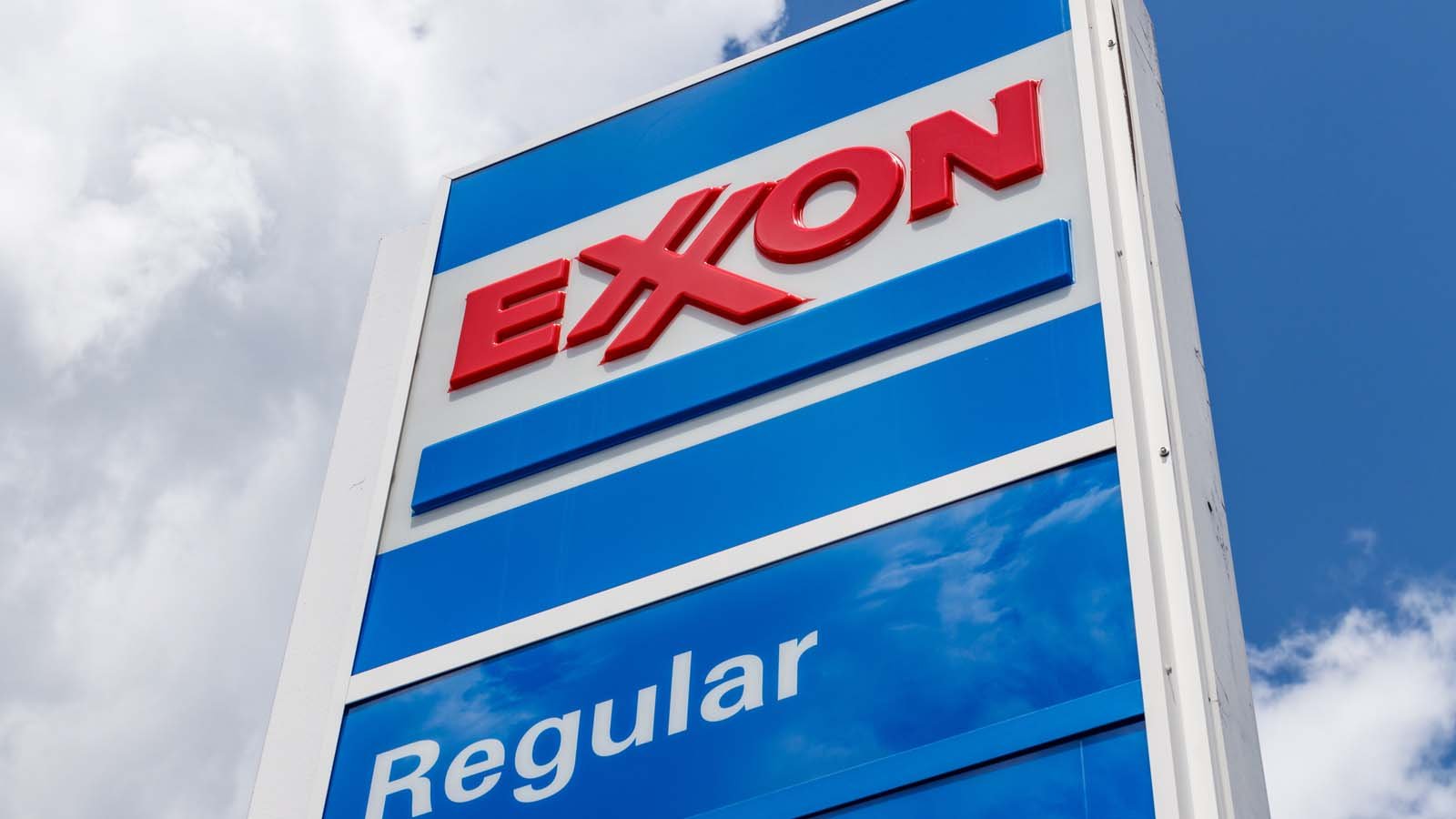Exxon Mobil (NYSE:XOM) CEO Darren Woods knows he’s in a dying business, even as profits continue to rise.
All new cars will be electric by 2040, he said in a recent interview. But managing the transition will be costly without new investment.
For example, Exxon Mobil stock opened June 29 at $92/share, up 49% in 2022, despite a 13.4% drop since just June 8, when it hit an all-time high. The result was a market cap of $386 billion, a price to earnings multiple of 15, and a dividend yield of 4.1%. It was trading around $83 on July 6.
| Ticker | Company | Recent Price |
| XOM | Exxon Mobil | $83.28 |
Missing the Big Profits
The biggest profits in today’s market are “downstream,” as the oilmen say, in refining oil for use as gasoline and other products. These are earnings Exxon Mobil is missing out on.
In its first quarter report the company reported downstream profits of $332 million, with U.S. profits down by 25% from the previous quarter and a loss on international refining. It blamed this on its exit from Russia, which cost $3.4 billion, 79 cents/share, on its bottom line. Total sales of product were down from the previous quarter and up only 5% from the year before.
The numbers are expected to be much better for the current quarter. Analysts expect net income of $2.83/share, more than double last quarter’s $1.28, on revenue of $92 billion, just slightly above the first quarter’s $90.5 billion.
Like the rest of the industry, Exxon Mobil is no longer expanding its U.S. refinery operations. Instead, it’s adding carbon capture facilities to its huge Baytown plant and producing hydrogen from some of its natural gas, which it calls “blue” hydrogen. (Hydrogen produced from renewable sources is called “green” hydrogen.) It is still planning the sale of a 61,000 barrel/day refinery in Montana in the face of rising profits.
Guyana Profits
U.S. oil production has risen as profits have, but Exxon’s upstream profits will be driven by Guyana starting in 2023. The company says it has discovered 11 billion barrels of oil equivalent off the South American coast. It’s putting $10 billion of investment into Guyana. It plans to get 250,000 barrels/day there in 2025 and increase it from there.
Combined with investment in Texas’ Permian Basin, where it spent $6.6 billion for the assets of the Bass family five years ago, the company says it has put $50 billion into U.S. oil production over the last five years.
The problem is that capital investments take years to pay off, and the U.S. needs oil now. The Biden administration ascribes Exxon’s lack of investment to greed. Woods, who faced a board rebellion last year over his lack of green investment, says the company will be putting $15 billion/year into reducing emissions by 2027. Increasing production while cutting emissions are contradictory in the oil business.
The Bottom Line on XOM Stock
Exxon Mobil only looks like it’s in the catbird’s seat in today’s red hot oil market.
The Ukraine war sent oil prices over $100/barrel, but that war will end in time. Today’s investments in increased crude production may not pay off until prices are much lower.
The biggest short-term bottleneck is in refining, where capacity has been declining for years because of continuing losses. Exxon Mobil can’t turn that around on a dime and won’t. Instead, it is putting its downstream money into the Middle East and into efforts to reduce its U.S. refinery pollution.
Investors who buy Exxon today looking for growth are making a mistake. This is a dividend stock undergoing a slow, long-term liquidation. Compare that dividend to a bond and don’t chase the capital gain, which will disappear once peace appears on the horizon.
On the date of publication, Dana Blankenhorn held no positions in companies mentioned in this article. The opinions expressed in this article are those of the writer, subject to the InvestorPlace.com Publishing Guidelines.
Dana Blankenhorn has been a financial and technology journalist since 1978. He is the author of Technology’s Big Bang: Yesterday, Today and Tomorrow with Moore’s Law, available at the Amazon Kindle store. Write him at danablankenhorn@gmail.com, tweet him at @danablankenhorn, or subscribe to his Substack.
